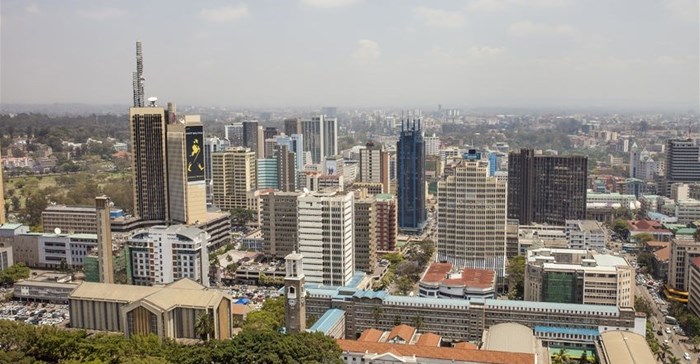The African Real Estate and Infrastructure Summit in November will gather developers, investors and planners together on the continent to discuss the future of the African city and come up with a unique model that serves the interests of all people on the continent.

Nairobi, Kenya. Image by 123RF
“New forms of urban planning in African cities seem to be dedicated to transforming them into replicas of Dubai, Shanghai and Singapore,” says Professor Vanessa Watson, of the School of Architecture, Planning and Geomatics, University of Cape Town.
According to Prof Watson, the main challenge of the real estate sector on the continent currently is “to find approaches to real estate development which are not only for the wealthy, and which find architectural and planning approaches which are not simplistic ‘cut and pastes’ of cities elsewhere in the world.”
Watson is part of the speaker line-up at the upcoming African Real Estate and Infrastructure Summit in Cape Town, from 2-3 November 2016, with a contribution that will focus on ‘African cities for sale. Worldclass, smart, eco or just profitable?’
She explains: “Rapid growth of African cities means that urban development is required, but noting that the vast majority of this growth is of poor and unemployed households. The very small urban middle-class offers limited opportunity for real estate aimed high-income households. Finding housing models for lower income households is absolutely possible and offers far greater opportunity.”
Other exciting speakers on the programme include Jose Miranda, regional director Africa, Aurecon, who will be part of a presentation entitled: ‘What makes an $800-billion project in Africa?’ about the international, award-winning General Master Plan for Luanda City (2030 Luanda Plan), outlining the sustainable transformation and development plans; and Albert Smuts, architect and director, Fieldworks Design Group, who is part of a panel discussion on ‘Making African cities of tomorrow inclusive’, at the event next month.
Says Miranda: “Water, energy and sanitation are fundamental needs for all human beings. Preserving Luanda’s natural environment, whilst providing the people of Luanda with a future city they will benefit from, is an important priority to Aurecon within the Luanda City Master Plan or Plano Director Geral Metropolitano de Luanda (PDGML).
“As part of the strategic city and provincial wide infrastructure planning service provided, we attempted to ensure the people of Luanda and surrounds have access to energy, drinkable water, sanitation, and increased waste recycling.”
Smuts says there seems to be a measurable disconnect between the public sector and private sector regarding city planning. “There is very little in the form of readily available land intended for private development within our urban centres, and in turn governmental city planning suffers because of the consequential sprawl.”
He continues: “the rate of urbanisation in Africa far exceeds that of the western world, which means that un-programmed, unprotected open land becomes quickly commoditised. This exacerbates issues associated with the expansion of suburbia and urban sprawl.”
More headline speakers at the African Real Estate and Infrastructure Summit are: Tim Harris, CEO, WESGRO; Jean Pierre Elong Mbassi, secretary general, UCLG-A; Lekwalo Mosienyane, director, Business Botswana; Mokena Makeka, founder and principal, Makeka Design Lab, South Africa; Kecia Rust, director and founder, Centre for Affordable Housing Finance in Africa / Secretariat to the African Union for Housing Finance, UN-Habitat; Amine Turki, secretary general, Africa Union of Architects, Tunisia.
The Summit will gather the full spectrum of the continent’s real estate sector and will assist African cities and governments to secure international investment for commercial real estate development and infrastructure projects that will contribute to Urban Development Plans (UDPs).
The African Real Estate and Infrastructure Summit is organised by Spintelligent and the African office of Clarion Events, based in the UK.












